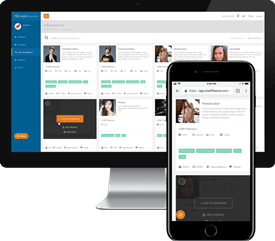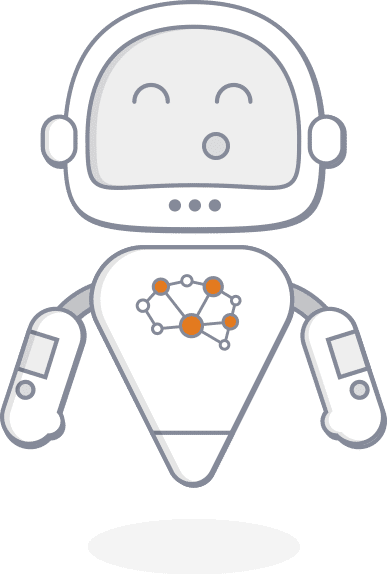Connect with Dr. Rein
Intellifluence profile
Dr. Rein’s Website
Dr. Ben Rein is a neuroscientist at Stanford who began sharing educational science videos on social media in 2020. Dr. Rein’s videos summarize recent research papers, debunk viral videos containing misinformation, teach fundamental neuroscience lessons and inform about the importance of scientific research. Additionally, Dr. Rein offers guidance to students in science through a video series called “Scientips” and leads the Aspiring Scientists Coalition, a global community organization that hosts free events for students in the sciences. Dr. Rein also runs a Snapchat show called “Make it Brain” and has partnered with one of China’s largest video-sharing sites to enhance science popularization. You can follow Dr. Rein on TikTok, Instagram, and YouTube or visit benrein.com for more details.
It’s not every day I get to speak to a neuroscientist, so I’m really interested in your background. Can you tell us a little bit about it?
Of course. Yeah, so like you said, I’m a neuroscientist. I’m currently doing my research at Stanford University. Previously I did my PhD at University of Buffalo, where I’m from, and I’ve always been interested in social interaction and the brain systems that control those things. And so that’s what I’m studying, but I didn’t expect that I would end up on social media and that happened just sort of naturally and it was truly happenstance, but I’m glad it did.
What inspired you to branch out and bring your message to social media?
It actually happened on accident, believe it or not. I guess some people probably have this story, but long story short, I posted a video on TikTok and it went viral. That’s pretty much what happened, and I wasn’t intending on doing it. I genuinely, I know it probably sounds made up, but I wasn’t trying to go viral. I was just using TikTok to record myself for a video that I was posting on my personal Facebook, and it did go viral and people started asking me questions about science, and I was like, I guess this is a good niche to be in.
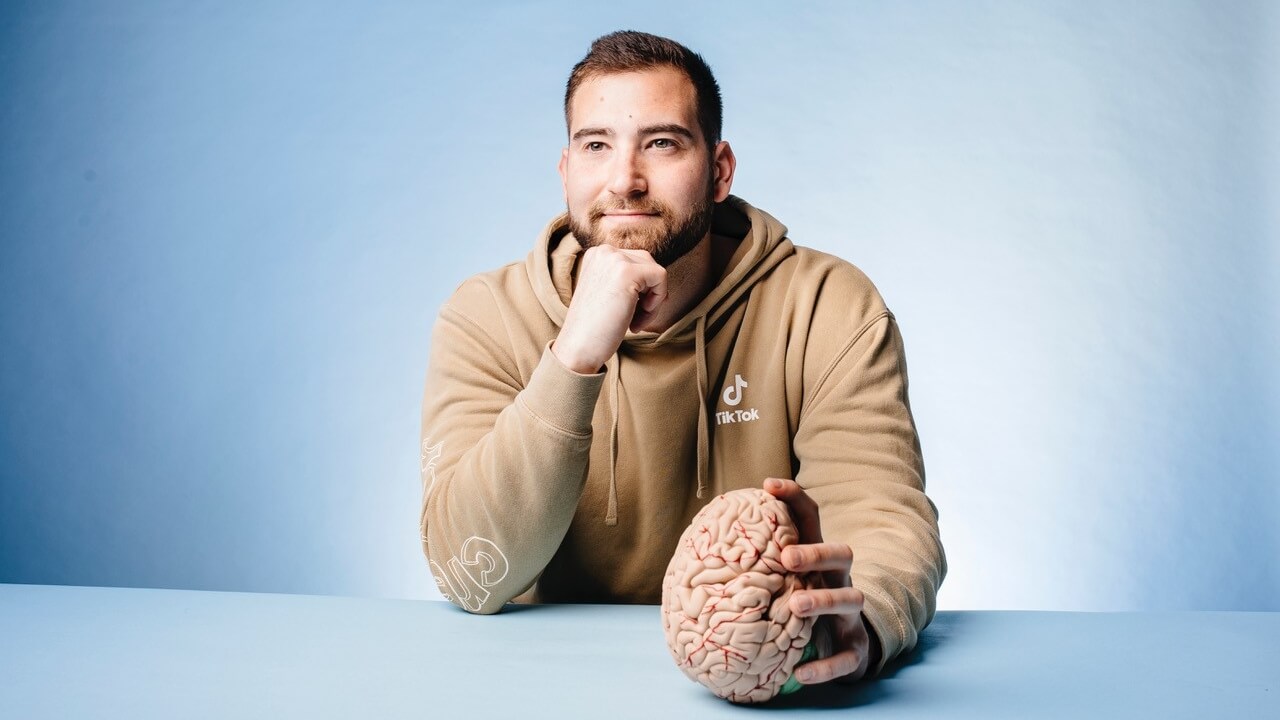
Photo courtesy of Ben Rein
And so I kind of just went with it, but I’ve truly felt the impact of it, and it seems really important. And it’s unique because I got into science because I wanted to make a positive impact on the world through science and through discovery. And I’m realizing that I could make a positive impact through education and through something that I have in my pocket all the time. So it’s really cool.
When did this happen? Because I hear a lot of people say, “It was like during lockdown. I was bored. I made a video. It went viral. Now I’m an influencer on TikTok.”
That’s literally what happened. And what’s even funnier is that the video that went viral was explaining how to wear a mask because I was used to wearing them in the lab and I was like, okay, now my friends and family have to go to the grocery store. They’re not going to know how to wear one.
So I might as well just make a quick instructional video. Like I said, for my Facebook, I was just going to tell my friends and family, here you go. And it ended up going viral and yeah, it’s kind of funny.
What does an average day look like for you with everything that you’ve going on, education, career, and then social media?
Typically I’ll spend some portion of my day in the lab at Stanford doing experiments. That all differs. Some days I’m in there all day. Some days I’m there for just a couple hours. And then I kind of have the freedom to distribute my time for whatever else it is, if it’s things like this, podcasts, all that sorts of stuff, side projects. My primary role is as a scientist, and so that takes up most of my time, but I like to find little ways to squeeze in other side projects like making videos and doing things like this. So every day is different, but I try to make every day a little bit exciting.
Are you one man crew? Do you have anyone else assisting you in the work that you do?
No, it’s all me. I do it all and I don’t think I do it all well, but I do it all and I would love to expand. So it’s just a matter of figuring out how that would work, and there’s a lot of questions there.
How do you help social media users combat misinformation?
It’s so tough. I mean, there’s a huge incentive with social media for any given player, any person on social media to create a video that shares something bewildering and incredible. And on a place like TikTok, if you do something, you find a convincing way to tell a story that’s just incredible people will engage with it and you’ll probably go viral. And so there’s actually this kind of failure in the algorithm that it incentivizes people for essentially making things up or twisting the truth or just creating the most flabbergasting story they can. And so unfortunately, what we have is a lot of misinformation on social media. And as a scientist, someone who pays close attention to data and allows the empirical results to guide my thinking, it’s really tough when I see misinformation all over social media and people don’t really know what to do with it.
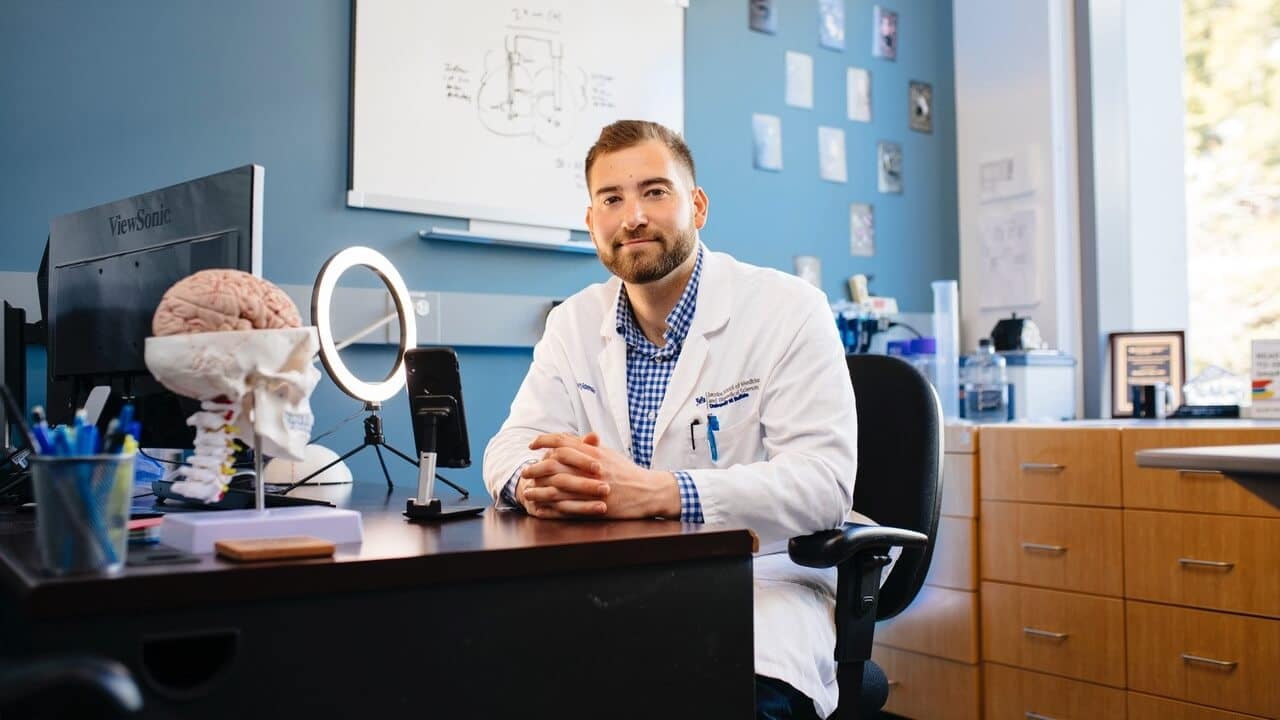
Photo courtesy of Ben Rein
People don’t know how to validate whether the information is accurate or not. So I guess there’s no blanket intervention, but I would just encourage you all to always be aware of where your information’s coming from. Who’s the person talking about it? Where are they getting the information from? It doesn’t matter. I could be a neuroscientist from Stanford, but I could be talking about some information that I saw on Wikipedia. It’s always about where the source of the information is ultimately. So think about that and always just take everything with a grain of salt. It’s good to be a little bit skeptical, especially if it sounds like absolutely mind-blowing incredible and you’ve never heard about it before.
What has been your most popular TikTok to date? Was it the mask one or is there something else that’s blown up?
Funny enough, my most viewed TikTok video was about the most boring thing you could possibly imagine, which is something called the sodium potassium pump. The cliff notes of it is basically we have this molecular channel in our brain cells that basically keeps your brain cells ready to go at any given point. So it doesn’t actually contribute to brain function. It just sort of keeps your brain cells…
You think of a horse at the stable ready to go, that’s pretty much all it does, and it takes up 10% of our total body’s energy, and it’s just pretty incredible that it’s that much of an energy sync that really just allows you to be ready to do stuff.
So that video had 6.5 million views, and somehow I duped 6.5 million people into being interested in the sodium potassium pump, which I am a bit proud of.
What are some short-term goals you have for social media, for your career? What are some of the next steps for you?
I’m figuring some of that stuff out. I mean, there’s always thoughts about expanding to new platforms. I haven’t really done much on Twitter or YouTube, and there’s these ideas about writing a book or something like that. There’s always this expansion idea, right? But it’s hard to know what’s the right thing to do. For now, I think I’m just going to stick to my guns and just keep doing what I’ve found success at and hopefully continue to grow those pages a bit more. As you alluded to earlier, I might try to build a team and really build out what I’m doing because I only have so much bandwidth myself.
But definitely it’s an ongoing goal of mine to just continue educating the public however I can and making science accessible and clear and as interesting as it possibly can be for the public, because frankly, science can be cool. It can be very interesting. I think the way that we’re often presented with science though is very boring, and it’s a very textbook academic classroom setting, but there’s a lot of really cool information there, so I just want to keep finding ways to propagate that however I can.
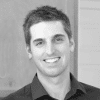
Andrew is the Head of Client Services for Intellifluence and has a background in communications. He is committed to helping brands get the most out of their campaigns and is the co-host of the Influencer Spotlight series.



